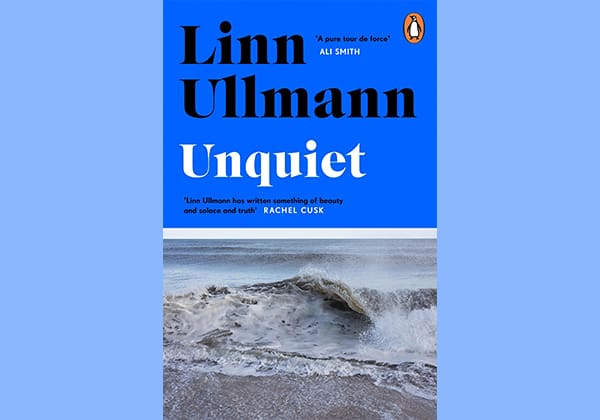Raised by a European mother with contempt for almost all American entertainment, many of the novels of my adolescence were set among the dense cold and the oppressive, overcast skies of northern Europe as I obsessively followed her adoration of Scandinavian Noir. In the years since, having traversed every habitable continent in my reading, finding Unquiet by Linn Ullman with its quiet grief, bony cold, and skies turned hollow with greyness, felt like I had returned to a place familiar enough to recognise, like I had come back to a place I almost believed was my own.
Unquiet traverses the contours of a childhood shaped by disillusionment and isolation within a family — as one grows up to realise that their parents are more than just parents, but are flawed individuals who existed long before us — before we ever had the nerve to assume, in the innocence and shameless selfishness of childhood, that they orbited our worlds and not their own.
The book, in sincere, thoughtful grace, shows what it is to be attached to a place with a love unreasonable in its enormity. It frays the threads of fiction and reality that are woven into places haunted by entire ecosystems of memories, contorted by what we have made of them and what we have willed the past to be. What is it, Ullman questions, to recognise yourself in a place more than in your name? What parts of you will fracture in leaving, and what will you find of yourself when you go back?
Unquiet questions not what happened in the past, but where it is set. What is the air like there? And the trees? What sounds were there? Which visions of the past can you trust and which are half-truths blurred by the obsessive incantations of nostalgia, the growing pains of childhood and the longing that haunts our grown-up dream?
If you asked me where my past exists — where the memories that I cannot help returning to are set, where I felt like my life began — I’d tell you about a field in the German south, of air so sharply cold it stings your cheeks pink, of a long-gone row of apple trees and the forest of pines a further two fields down. I’d tell you about the sound of violin solos on the radio at breakfast, of newspapers — the distant memory of real print, my grandfather’s black coffee and I, feeling so grown up, so old for being allowed to drink it with him.
This is the effect of Ullman, that in contorting memoir and fiction while looking back into herself, her family, the places of her past, and the ways in which they lay heavy among the present, she grants us the grace to make our own places of the past, to let them hold stories, to hold tightly to a cut-down row of apple trees and the violin on the radio not out of trivial sentimentality, but as a small act of resistance against the enduring transience of growing up and growing old.
The story follows an aging Swedish filmmaker and his daughter, as they plan to write a book together about growing old — it tracks the conversations the pair have, the incessant questions asked, and the distractions created by a mind wrought with age and obsessed with Bach. “Happiness is finding yourself in the middle of the planning phase, when everything is possible and nothing is final,” writes Ullman. “A plan is more tangible than hope, there is time to spare.” Their conversations, recorded for the writing of the book, determine the entire trajectory of Unquiet and reflect their attempt at understanding each other deeply, despite the limitations of language, the dauntingness of vulnerability and the haunting effect of hindsight.The weight of love and loneliness is woven into their conversations, so present it is almost tangible. He loves his daughter out of habit, or memory, because the past is more tangible and the effort of lucidity in the present becomes ever greater with age. Her loneliness is that of grieving someone who is not yet gone, yet is absent but for the tendrils of existence he holds onto with great effort.
Yet this is not a bleak book. Their plans — the idea that they can control the presentation of the past and wring the future into what they wish it to be — fill their lives with optimism.
Held together by an amalgam of houses, streets and cities, from Sweden, Norway, Munich and New York to the little flat at 91 Dammensveien, and summers spent in the Faroe Islands, Unquiet traces the past as a lineage of places, seeking to understand childhood and daughterhood in its many shadows and shapes. Along the way, Ullman holds the grief of loss in gentle hands, and shows what it is to defy the incessant transience of time and age with a concentration of force and passion that could only point to a life lived in awareness of its own enormity.





